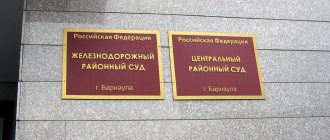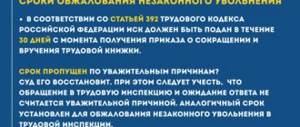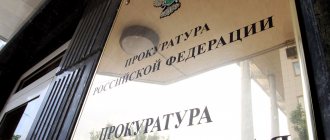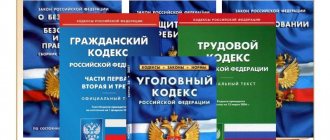Russians will decide for themselves how to address the “police gentlemen”
Just over 300 Russians agreed to call police officers gentlemen policemen, but almost 2.5 thousand people believe that Russian police officers will have a new version of the nickname, and that is what they will be called. This is evidenced by data from a survey conducted by RIA Novosti on the website from February 16 to 18, in which almost 5 thousand people took part.
321 people voted for the option of addressing “Mr. Policeman”, another 587 people believe that police officers can be addressed as before - sergeant, major, chief. Another 296 respondents are ready to call internal affairs officers cops, beans or pharaohs.
But 2.4 thousand people, or 47.5% of respondents, believe that Russia will have its own version of police nicknames, as citizens will call them. 759 people voted for the “other option”.
Image is everything
The head of the department of general and comparative historical linguistics of the Faculty of Philology of Moscow State University, Alexander Volkov, believes that the appeal to the police, which will be included in the speech of Russians, will directly depend on the existing image. “The issue in this case is not in words, but in reality. And how they treat the police is how they will call them,” Volkov told RIA Novosti.
Leonid Krysin, Deputy Director of the Vinogradov Russian Language Institute of the Russian Academy of Sciences, shares a similar opinion. He believes that everything will depend on the image of Russian police officers. “The police environment, unfortunately, is not respected, so games on forms of address are not very respectful, but if the environment changes, there may be more loyal appeals,” said Krysin.
The word “policeman” must first take root in society, and only then its derivatives will begin to appear in Russian speech, says Maxim Krongauz, director of the Institute of Linguistics at the Russian State Humanitarian University (RGGU). “People always come up with something of their own and it’s pointless to push them,” said the director of the institute, adding that the address “Mr. Policeman” is unlikely to take root in the speech of Russians.
Krysin, in turn, said that this appeal could only be heard in high circles. “On the street they will address you as ‘sergeant’, ‘major’ or in the old fashioned way ‘comrade major’,” he said.
Cops and pharaohs won't get along
Experts interviewed by RIA Novosti believe that such addresses as “chief”, “commander”, “sergeant”, “major” will remain in the speech of Russians and will be actively used for some time. And such foreign words as “kop”, “pharaoh”, “bean” and the like will most likely never appear in the Russian language.
“I think that “cop” is not transparent for us, something has already been put into the word “cop”, it is played out, and “cop” is two dull consonants, a silent word. “Bobby” doesn’t bow at all, it’s clearly clear that it’s not a Russian word. “Pharaoh” is also not very clear,” says Krysin. He added that in pre-revolutionary Russia the word “pharaoh” was already used in relation to police officers.
“They were also called “Pharaoh’s mice” due to the fact that they were apparently dressed in gray uniforms. Kuprin has a moment in the story - “I’m afraid of the pharaoh’s mice,” that is, the police,” Krysin added.
As for the word “policeman,” according to experts, in Russia it has a negative characteristic and therefore, most likely, will not be included in the speech of Russians. “The word “policeman” has a sharply negative connotation associated with the war, as the police officers appointed by the German occupiers were called. In general, this is a neutral German word and there is nothing bad in it, but in the Russian language it has a completely different connotation,” Kronhaus said.
According to experts, “policeman” with a negative description may replace the word “cop.”
How to address a police officer: citizen, gentleman or comrade
Everything was simple before
In the Soviet Union we had such a good official and unofficial word “comrade”. This word could be used to address strangers, acquaintances, and even friends. This word was used before a surname, before a title, before a position, and before a profession.
For example
Comrade Ivanov, what do you know about the political situation in Poland? Or - comrade collective farm chairman, where are my work days for harvesting potatoes?
It was even easier with the military. Comrade Major, may I address you? Comrade captain, comrade colonel, even a marshal or admiral could and should be called comrade.
But the Soviet Union no longer exists. The word “comrade” is used less and less often in official Russia. How do they now address an officer in the army or among the military in general?
It turns out that the word “comrade” is still alive today! Phrases such as “comrade officers”, “we wish you good health, comrade lieutenant” and others are spelled out in the Charter. And there are no “gentlemen officers” in the Charter.
All this can be found in these documents
The army has been dealt with
How can a Russian citizen now contact a police officer? Previously we used it like this:
Comrade policeman, what will happen to me now for this?
Or by rank:
Comrade Lieutenant, why did you detain me?
There was another address to the policeman - “citizen major” or “citizen chief”. That is, before the title
or the word
chief
was the word
citizen
. Everything seemed fine. But that’s what the criminals usually called the police, those who were in prison.
Remember the phrase from the film “The Rumyantsev Case”? Let me remind you.
The hero of the film addresses the investigator with the word “comrade.” And he answered him: The Tambov wolf is your comrade!
Therefore, if you address a police officer with the words citizen policeman
, or
citizen major
, then the police officer may think about your criminal past.
Soviet police.
Still from the film “The Investigation is Conducted by Experts” In pre-revolutionary Russia, a policeman was addressed with the word “Mister”. Today's police officers, for the most part, are not like gentlemen. Therefore, you should not address them this way (opinion of the author of the article).
The word comrade remains (we will not consider phrases such as “dear” or “listen, cop”).
Claire Forlani in the movie "Police Academy." Still from the film for the cover of the article. The girl has three stripes on her shoulder straps, which means you can address her like this: Comrade Sergeant
And although the phrase comrade policeman
For us citizens of the former Soviet Union it looks very strange and can even cause hostility (we still remember who they called policemen in the Great Patriotic War), you need to address a policeman with the word COMRADE.
If you don't like the word policeman, don't use it. Address the police officer by rank. Comrade lieutenant, comrade major, etc. If you don’t understand ranks, call him an officer :) Such treatment will be pleasant even for a sergeant :) This will be appropriate even if the police officer is a girl.










